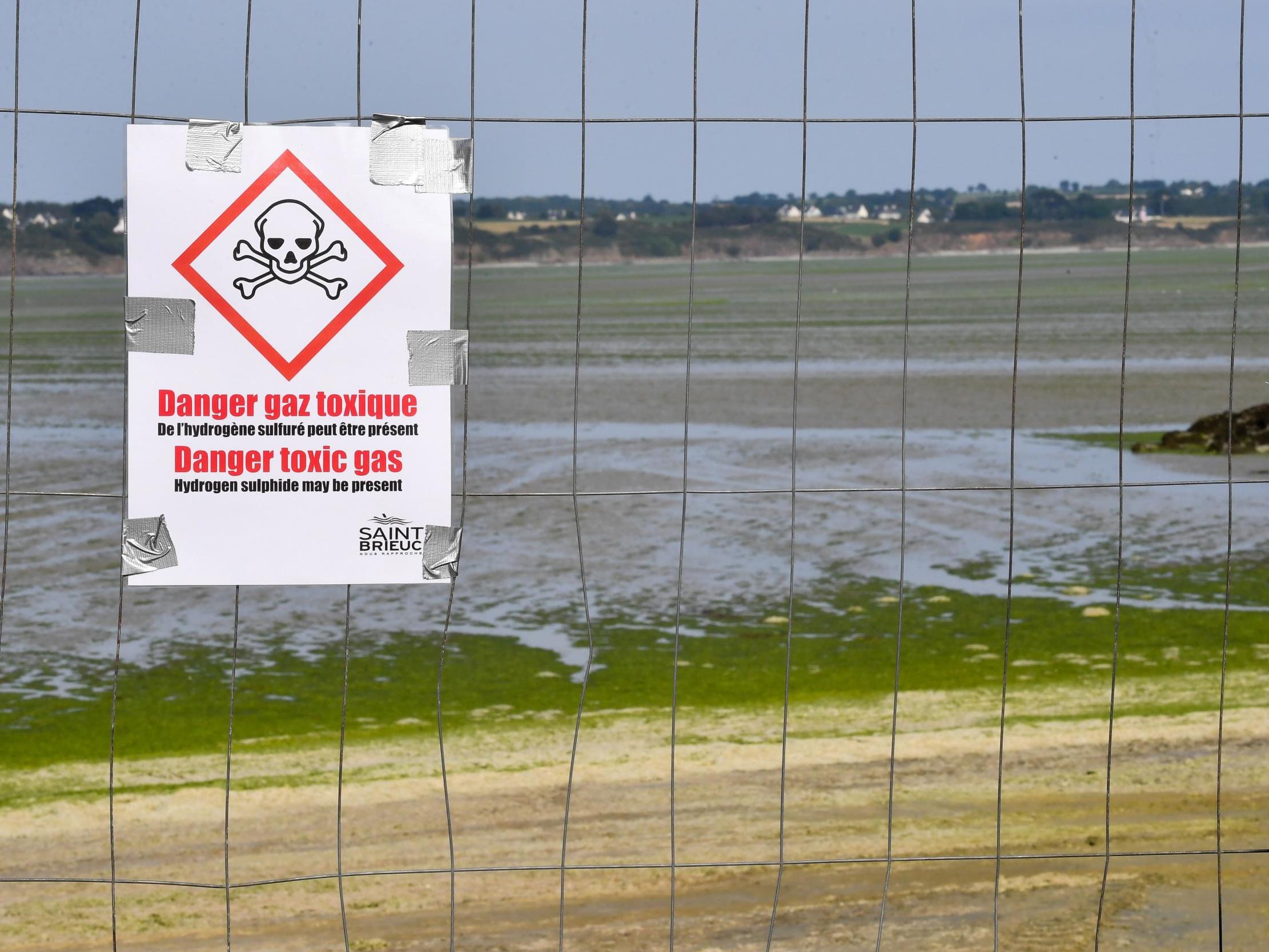British tourists warned to avoid 'killer seaweed' in France blamed for death of teenage oyster farmer
Rotting algae gives off highly-poisonous gas previously linked to death of jogger, horse and wild boar

Tourists are being warned to avoid rotting seaweed in France, which may have killed a young oyster farmer.
Environmental groups Safeguard Trégor and Stop Green Algae believe the abundant sea lettuce is to blame for the 18-year-old worker’s death in the Bay of Morlaix, in Brittany, on Saturday.
As it rots, seaweed gives off hydrogen sulphide (H2S) – a colourless and highly poisonous gas which smells of eggs.
Public prosecutors are said to have ordered a post-mortem examination to find out the cause of the teenager’s death, according to The Times.
Fears surrounding “killer seaweed” in France have been growing for a number of years.
Increasing amounts of the algae is believed to be linked to nitrate pollution caused by intensive farming.
Concerns were reignited in 2017 when a man out running collapsed and died near Saint-Brieuc.
His death was considered to be caused by a heart attack – but it was later pointed out that it was the same stretch of beach where 36 wild boar died in 2011.
A horse that died on a nearby beach in 2009 was also found to have been killed by hydrogen sulphide poisoning.
Join our commenting forum
Join thought-provoking conversations, follow other Independent readers and see their replies
Comments
Bookmark popover
Removed from bookmarks